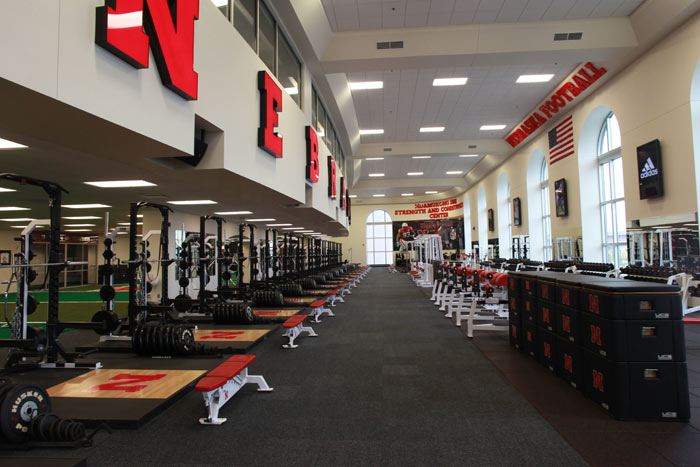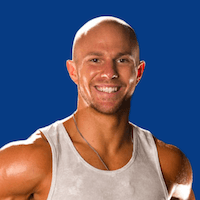The battle for the right to be named king has crowded the front lines. With more and more niched professionals coming out of the woodwork claiming their rights to the throne, who provides the ultimate performance environment for athletes and clients looking for the edge?
The top two contenders competing for clients from an eerily similar demographic are sports performance physical therapists and strength and conditioning coaches.
Which of these professionals are more valuable to an athlete or client, with the goal of maximizing their full physical potential? And can these two groups ever successfully work together without turning every client session into an unruly pissing match?
THE PROBLEM WITH THE MULTIDISCIPLINARY MODEL
The question that I ask myself on a daily basis is this: can't we all just get along and work together? Recent history has proved its monumental challenges in doing so. With the gap growing larger between the two specialties, we may never find a way to synergistically coexist.
There are many archaic and deeply rooted issues holding back the advancement of the multidisciplinary model. In this testosterone & ego infused industry, it's no wonder that referrals between physical therapists and performance trainers are hard to come by. I guess I was wrong in thinking that the greater good of your clients and athletes was the top priority.
Both strength coaches and physical therapists are here to stay. And if you want to stay relevant in this industry, you too better learn to understand the intricacies of each other's skill sets to yield the types of results for your clients that will keep the doors of your business open!
THE BREAKDOWN
It isn't easy to take an objective look at both sides of the performance spectrum, and what may ultimately provide the best possible environment to achieve lofty training goals. If you've ever been able to throw a credential on the back of your name, proudly representing either of these groups, then you've been bred to stand strong behind your core beliefs and values of your chosen vocation.
That being said, because I've lived and breathed each of these specialty professions, let me weigh in with my thoughts in a few given categories, comparing and contrasting the pros and cons of each type of fitness professional.
- Education
- Fitness Trainer Certification
- Practical Field Experience
- Professional Limitations

THE EDUCATION
Getting to throw a "Dr." in front of your name has its perks. That said, the type of doctor that physical therapists are in reality (clinical doctors) is closer to Stu from the "The Hangover," and a far cry from the courageous and unequivocal physicians of the world that are curing cancer and performing brain surgery.
Throughout the years, the entry-level degree for a physical therapist in the United States has progressed from a bachelor's degree all the way to the current clinical doctorate. However, the question remains, does all the additional years in academia produce better clinicians? Or is it just a way for the universities to jack up the tuition costs and try to compete with the Doctors of Chiropractic?
While the undergraduate degree for physical therapists can be varied, a large percentage choose to concentrate in exercise science. This just happens to be the same specialized field and program many strength and conditioning coaches stem from, setting up the potential for increased rates of hurt butts when said ES majors get rejected from PT school.
With admissions for the doctorate in physical therapy becoming increasingly competitive, many promising and passionate students are turned away due to lack of grades and standardized test scores. In recent years, this has provided the strength and conditioning community with some of the brightest minds all falling into the profession and elevating it from the bottom up. It's also left a huge chip on the shoulders of many newbie strength coaches who were turned away from a potential career in physical therapy.
WINNER: PHYSICAL THERAPISTS
While the two professions are largely separated from an educational standpoint, I'm a huge believer that no education is wasted. Physical therapists come out on top of this category due to the additional two plus years of schooling under their belt before hitting the workforce. This isn't to say that some great strength coaches do not hold masters or terminal doctorate degrees, but rather prerequisite educations to hold the credential that is being taken into account.
THE CERTIFICATION PROCESS
If your aspiration is to be an elite level strength coach, you better damn well be certified by at least one respectable accrediting organization. This isn't personal training, this is strength and conditioning!
Today, many young coaches choose to be certified by the National Strength and Conditioning Association (NSCA) with their Certified Strength and Conditioning Specialist (CSCS) specialty. This certification is no walk in the park, and anyone who tells you so obviously hasn't put in the concentrated effort to become legitimately certified by an organization that actually holds value.
The CSCS has a prerequisite of holding a bachelors degree, which weeds out many wannabe coaches from an educational basis. The test is composed of two separate parts, which are individually completed in a testing center. Personal trainers beware, this test can't be completed on your iPhone over your lunch break while you draw up your pricing sheet charging upwards of $100 per hour for your "expertise." The CSCS has a pass rate of 63%, which means it's damn hard to get certified. That statistic should speak for itself. If you're an uncertified strength coach, quit pretending and put your mind and money where your mouth is!
Physical Therapists are licensed in their state of practice by a unified national examination. This exam tests global knowledge from all specialties and practice areas of physical therapy that was learned over the 3-year doctoral program. From pediatrics to skilled nursing, a physical therapist must cover all their bases to pass this gargantuan exam.
Because the profession has so many directions in which one can specialize, the exam itself is not a test of knowledge and expertise in your chosen field of specialty. This exam is all about weeding out the therapists who are likely to pose danger to their patients while in the workforce. The material is trivial at best, and does nothing to advance your career. Though it something every physical therapist who plans to practice must get through, in my view, it is a monumental waste of months of concentrated study.

WINNER: STRENGTH AND CONDITIONING COACHES
Strength coaches are specialists the second they pass their CSCS. This doesn't mean that every 21 year old walking around with a couple letters hanging off the tail end of his name is going to be Eric Cressey. All it means is that a foundational level of knowledge is present, and the newbie coach can build upon what they have mastered in the books. Physical therapists on the other hand know nothing at the point of passing their national examination. The game is just starting, and they are last man on the bench.
THE EXPERIENCE
While physical therapists, with the goal of becoming an orthopedic of sports performance specialist, are sitting through course work learning the proper way to transfer patients on and off the shitter, young strength coaches are in the field getting their hands dirty.
Years of the doctorate of physical therapy program are wasted in learning about specialties and practice settings most will never, ever work in. Many students know what where their passions are strongest, and expecting to have foundational knowledge in areas that will never concern you seem like an expensive and time-consuming hobby.
In-field experience is worth its weight in protein powder. Fitness professionals don't become better reading about movement in a book. They master their trade by training humans -- you know, the things that breathe air, drink water and walk on two legs.
WINNER: STRENGTH AND CONDITIONING COACHES
Learning how to communicate and coach cannot be taught in a classroom. You must be thrown into the fire to see if you are truly meant to be a coach or therapist. Some will survive while others just don't make the cut. If you're a strength coach who is ineffective and lacks passion, better to learn it early on than be stuck in a classroom for three plus years learning about the proper use of a walker like your counterparts in physical therapy!
Physical therapists are too busy being mind fucked in the classroom to develop intrapersonal skills that will become necessary to do their jobs at a high level later on. You're only as good as the information you can gain from your patients and clients, and in this generation of physical therapists, speaking to actual human beings poses a huge challenge, let alone treating them!
THE LIMITATIONS
Every profession has a practice act, which clearly states the types of activities that are within the scope of practice in an area of specialty. Usually, the higher the educational level, the broader the practice act. In the case of the physical therapist, the practice act gives them the right to treat patients with hands on therapy (manual therapy) and diagnose patients who present with pain. Without having been schooled or credentialed in differential diagnosis, strength coaches don't have the ability to diagnose or manipulate tissues.
As every strength coach clearly knows, there are people out there training with strength coaches and personal trainers who are painful train wrecks and have no business training in that facility. People with pain need to be referred out to a specialist to make sure they are capable of continuing a training session without the training being detrimental in nature. This isn't me giving my opinion; it's the practice act of both physical therapists and strength coaches.
This referral is almost never made. Coaches hate to let a paying customer walk out their doors into the office of a new (dare I say competing) professional. Not only may that training client never go back to the coach, but they may start training with the physical therapist that nursed them back to health, one thera-band corrective exercise at a time!
The very chance of this happening enrages the vast majority of coaches. Not only is there financial risk in referring an injured client out to therapy, but there's also an egotistical risk that the therapist may be smarter or uncover some flaw in the coach's training methods.
I have been on both sides of this equation. Before becoming a physical therapist, I was faced with many tough decisions with the management of athletes who were injured under my watch. From a strength coach's perspective, there's a difference between a slight muscle strain and a torn ACL. The ACL is easy to refer out, but the muscle strain causes you to question if you can manage it on your own without a professional diagnosis. The scope of practice in this example becomes gray, and gray is where problems tend to bite you in the ass.
WINNER: PHYSICAL THERAPISTS
There can't be a gray area for practice acts of physical therapists and strength coaches. The line needs to be drawn and stuck to. When you cross the line into areas unknown, there is an eminent risk to your clients and patients. We are fitness professionals for the greater good of our clients, and putting them at increased risk is negligent.
Physical therapists earn the right to use soft tissue techniques, diagnose injuries and care for athletes who have performance enhancement goals. The broadened practice act is what they paid that $200k for, and what has them living in their parent's basements until the age of 30 paying back student loans.
THE RESULTS
Both physical therapists and strength coaches have the knowledge and expertise on paper to make some drastic changes to their client's physical prowess, both in the weight room and on the field. Just as with any other debate, a profession as a whole is difficult to judge due to the outliers on both sides of the average for both professions.
Is the best strength coach in the world going to be more effective than a run of the mill physical therapist clocking out at 40 hours a week on the minute every Friday? Hell yes! On the same note, there are strength coaches out there who have proven time and time again to teach obsolete methods of training that are ineffective at best and dangerous at worst. The average physical therapist will look like a stud when compared to a meathead S&C coach who has a history of injuring his athletes regularly in training.
The point is, each of these professions presents an opportunity to make a marked difference in the minds and bodies of their clientele. How well you do that on a daily basis is an individualized question, and one that must be answered every day that you walk into your workplace.
IS THERE ROOM TO COEXIST?
The best coaches and therapists in the world know that the co-management of athletes and clients is not only in the best interests of the clients, but the future of the industry as a whole.
World-class training centers and high level athletics have been practicing the multidisciplinary model for decades. While all professionals of various strengths and backgrounds are under the same roof, the entire program is elevated with a continuous stream of learning and professional enhancement.
The private sector, fueled by egos and dollar signs, has created problems with the interaction between various disciples, all working towards the client's greater goals. Realizing that we all have a specialized niche of expertise, is the first step towards developing the future model of success. It's time to step aside from your egos and evolve.
Further Reading
Most Personal Trainers Shouldn't Do Assessments - Jonathan Goodman and Mike Reinold










